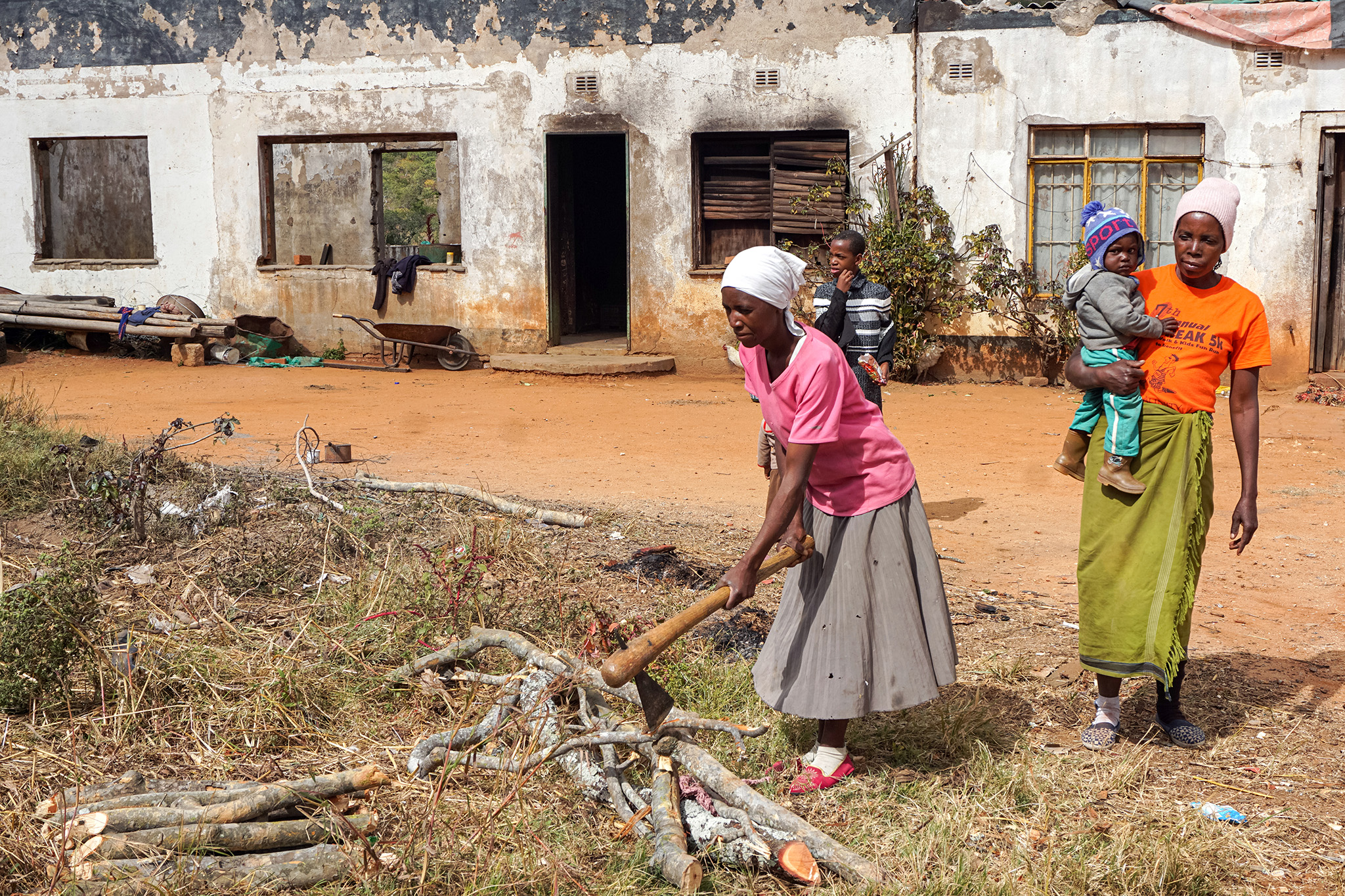
Evidence Chenjerai, GPJ Zimbabwe
Mutare residents bring firewood from the forests into their homes to combat rolling power outages. Cutting and selling firewood without a permit is illegal.
MUTARE, ZIMBABWE — Charity Bore’s home has a backyard that stretches into a forest. Nearby, there’s a mountain full of trees.
She says the forest is a blessing, since she does not have to travel far to get the firewood she sells on the highway that passes in front of her house.
“I know we should not cut down trees as they protect us from some weather conditions and soil erosion, but I am a mother with a family to feed,” says Bore, who is not formally employed.
Selling firewood in Mutare, about 274 kilometers (170 miles) from Zimbabwe’s capital Harare, earns her a few dollars to buy food. At the moment, firewood is in great demand thanks to the load shedding – the local term for rolling blackouts – afflicting the country.
Early this year, the Zimbabwe Electricity Supply Authority began load shedding due to a lack of water at the Kariba Hydro electric power station and technical faults at the Hwange Thermal power station, which together produce most of the country’s electricity.



Deforestation has always been a problem for authorities, especially in new settlements with no electricity available. But the demand for cooking and heating alternatives has risen due to load shedding across the country. The price of liquefied petroleum gas used to fuel stoves increased 600% this year, going from 2 Zimbabwean dollars (13 cents) in April to 22 Zimbabwean dollars ($1.41). Fuel generators that use gasoline or diesel are expensive alternatives; so are renewable energy sources such as solar energy, which requires costly imported solar panels.
That makes firewood the cheapest option for Zimbabweans.
“Demand for firewood is on the rise, to the extent that we are selling firewood that is not dry to keep up,” Bore says.
During last year’s budget speech, Zimbabwe’s finance minister said that between 100,000 and 320,000 hectares of forest were already being lost per year. According to a government environmental report, deforestation caused by increased demand for firewood in periurban areas has increased since 2011.
Phillip Tom, the Forestry Commission provincial forestry extension manager for Manicaland province, says forest cover is now at 30 to 35%, in part due to the cutting down of trees for firewood.
Deforestation affects ecosystems, causing soil erosion that results in silt filling rivers and disrupting water systems. The Forestry Commission administers the law around cutting down trees, which makes it an offense to cut, remove and collect any forest produce without authority and to move firewood without a timber movement permit issued by the commission.
“To sell firewood, one needs to be registered with the Forestry Commission upon payment of 100 ZWL ($6.40) per annum. The Forestry Commission will monitor the species and source of the firewood being sold,” Tom says. “Depending on the amount of damage caused to the forests, a ticket is issued if a person is found in possession of firewood without a license, as well as a fine.”
Despite this, many people still cut and sell firewood without a permit.



Legal or not, residents of Mutare without electricity are grateful for firewood merchants. And with so many people without formal employment selling firewood, prices are still low despite the high demand.
“It is cheap for us as you get firewood for any amount you have, due to competition of people that sell the firewood,” Sydney Mangweka says. He lives in a suburb of Mutare where power is cut for about 17 hours a day.
In addition to load shedding’s impact on deforestation, Tom says some urban councils allow farm bricks to be used to build commercial and residential properties. Firewood is needed to make the bricks, which also contributes to deforestation.
Tom says that there is a need to reform electricity and urban policies to reduce deforestation.
“The Forestry Commission’s mandate is to control and conserve forests. However, electricity companies and councils have different mandates which ends up with a clash of policies,” he says. He adds that funding for forestry conservation initiatives is very low and more resources should be channeled towards that.
In the meantime, locals continue to trade in firewood. Standing next to neatly packed piles of wood, Winnet Ngandini sells her wares along the Mutare-Masvingo highway. She goes into nearby forests, finds logs to chop into firewood and sells them by the bundle. She makes about 25 ZWL ($2) a day.
“I used to clean people’s houses for 3 ZWL (27 cents) per day,” Ngandini says. “Firewood is easy money.”
Evidence Chenjerai, GPJ, translated some interviews from Shona to English.







